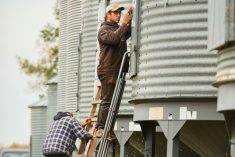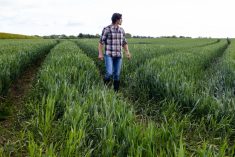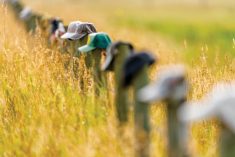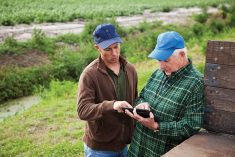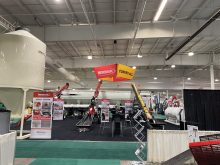Many articles have been written about farm succession or farm transition as it is more recently called. I think it’s time to look at some of the underlying reasons why this can be a difficult process. I base my comments on my work as a farm business and transition consultant for 17 years as well as input from my colleagues.
I believe there are two basic reasons why some people think farm succession is difficult. The first reason is it’s hard to start the process when one or more people of the farm family don’t want to do it or don’t feel it’s important enough to address at a certain time, even though other members urgently want the process to proceed ASAP. The second reason is once the process is started, difficulties arise and the process is stuck for various reasons.
Read Also
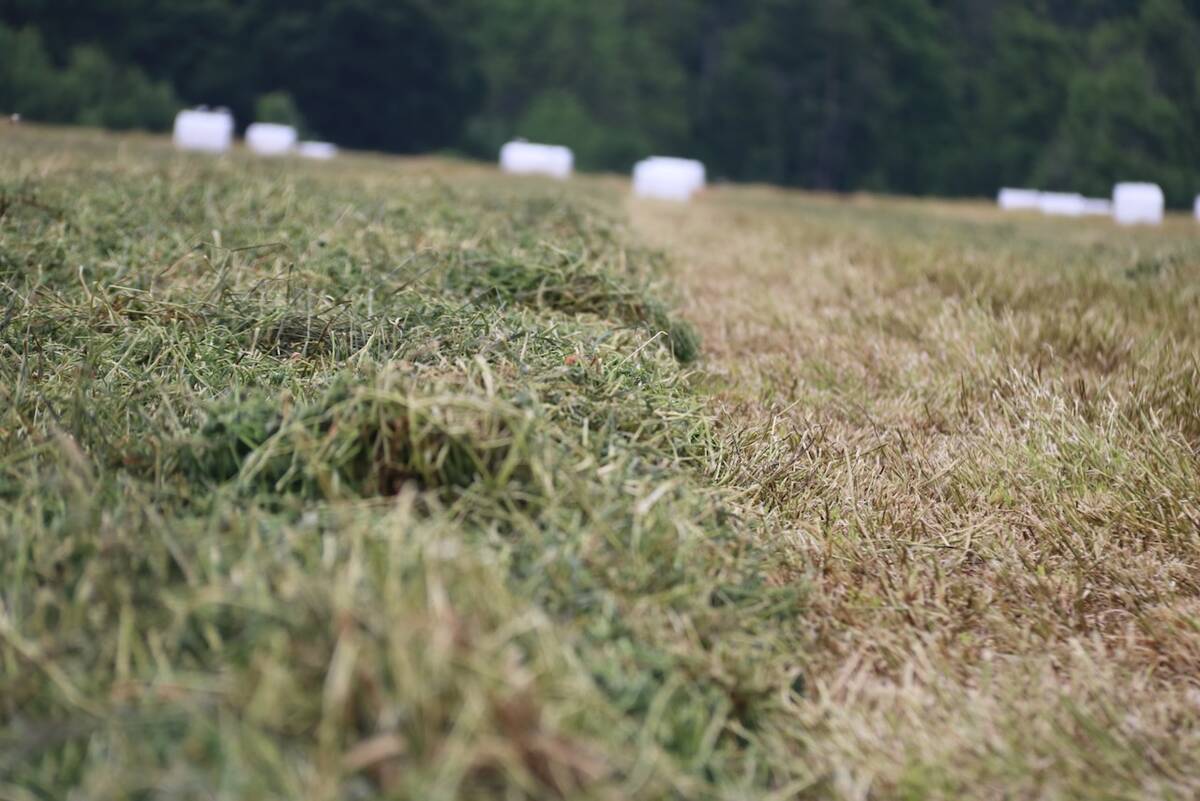
New high-performance forage training program to launch in 2026
A new Canadian Forage and Grasslands Asssociation high-performance forage program will be a resource for farmers, agronomists and others in the forage sector.
The problem of not wanting to address the issue usually originates with the “older” generation, which I will call the founders (even though they may not be the actual founders of the farm). They are comfortable with their lives and see no reason to change.
On the other hand, the “younger” generation, which I will call the successors, urgently want to plan and build a future for both themselves and their young families. Another reason may be the founders are afraid of any divisive issues (e.g. on-farm children and off-farm children, fair versus equal, etc.) so they avoid addressing the topic. It’s natural for the founders to pause the farm succession.
Let’s take a deeper look at some of the founders’ issues. The following examples explore those concerns as well as my responses to them.
Issue: The founders feel they will lose control of their operation.
My response: The founders will have to face this fact sooner or later — that they have to relinquish control of their farm. Elaine Froese, a farm family coach from Manitoba and Grainews contributor, said, “The founders have a choice. They can either pass control of the farm with a warm hand or with a cold one.” This means founders have the option to either hand over control while they are alive or after they have passed away.
Transferring control is best done in stages while the founders are alive. For example, I have a fillable table that tracks how this can be done along with target completion dates to highlight when one stage has been completed and it’s time to move onto the next.
The real danger of waiting until after the death of the last founder is the lack of completing a succession plan, leaving it to be addressed by a standard will which could state that all assets are to be divided equally among all of the children. In this case, the farm would probably have to be sold and proceeds split equally among the children, as the on-farm child will likely not have the financial ability to buy out the other siblings. This is a real trap for the on-farm child, who has likely put many years of sweat equity into the farm. More about that later.
Another issue related to this for the founders is a loss of identity. That means, “If I’m not a farmer, who am I?” Or, “What’s my reason for getting up each morning?” It’s desirable to develop some off-farm interests early in life, such as involvement in community groups (e.g. ag societies, churches, service clubs, etc.).
These organizations are always looking for help and mature adults have a lot to offer them. Ask yourself, are you farming to live or living to farm. I recommend the former. In the book The Third Pillar, Raghuram Rajan states that the third pillar, meaning community, is being left behind the other two, which are the government and businesses.
Issue: The founders feel their livelihoods are threatened if they sign over assets to the successors. They worry the successors might mismanage the farm and thus erode their retirement income.
My response: Founders do not have to sign over all assets at once. They can sign over assets in stages as successors show promise and responsibility similar to what was suggested above. A colleague, Allan Sawiak, a farm tax expert with KRP Group in Edmonton, suggests the founders (in a family) keep the land in their names until they both pass away, as a way to protect the farm. It can then be willed to the on-farm child (assuming the land is privately held). It’s a different scenario if the land is owned by a corporation, but I won’t go into those details here.
The above suggestion may not work in some cases where the on-farm child needs access to equity to help finance and grow the operation. Another idea is to give or sell (at a favourable price) some of the land to the on-farm child. At the same time, the siblings could also be given or sold (again at a favourable price) some land to help keep peace in the family. This should come with an option for the on-farm child to buy land owned by their siblings for an agreed price, with the option expiring after an agreed number of years.
The important point here is the founders retain ownership of a sizeable portion of the land for their retirement and security. If the land base for the farm is small, other alternatives will need to be considered.
Issue: The founders feel the successors do not have adequate skills or training to assume control of the farm, which again threatens the founders’ retirement income.
My response: Another business succession expert I follow is John Fast, who is the author of The Family Business Doctor. He recommends the successor get a post-secondary education (fallback occupation) and work for someone other than the family farm. This is to broaden successors’ educations, to give them the freedom to choose to join the family farm or not, to open their minds to other career possibilities and to learn how other businesses operate. At the same time, successors will get a valuable education on other types of farms and day-to-day business skills.
If required, founders should also encourage successors to take additional courses, which are now widely available via the internet and Zoom, for example, to complement their educations.
Issue: The founders fear the process will create family arguments and too much friction. They don’t want to be part of it and take the attitude of “It’s not my problem and the kids can sort it out after we’re gone.”
My response: Again, I return to the two options mentioned above — do you want to give the assets to the next generation with a warm hand or cold one? Also, do you want the farm to continue or not? If you want the farm to continue and keep the legacy going, then the farm succession process must begin while you are still alive, with a sound mind and body.
If that doesn’t matter to you then, yes, let the kids fight it out after you pass. However, be forewarned, the lawyers will be the real beneficiaries of your farm since it’s an invitation for legal battles amongst the children. The estate laws are very complex and I have seen family farms easily fall into the firm grasp of a very slow, disappointing court and negotiation process.
It’s an awful situation to witness. More fuel is added to the fire when there are complex family matters. Every farming business is complex and is filled with past promises and shared equipment. Without succession planning, the family farm is certainly destined to be in a real mess — and a story for the neighbours to talk about for many years.
Note to founders: Don’t delay the start to the succession discussion or updating your will. If your will hasn’t been updated for five years, it needs to be revisited. Make an appointment with your lawyer now. I was involved in one situation where the farmer went to sign his updated will and the lawyer said to him, “I can’t let you sign this, you’re not of sound mind.”
That created stressful and expensive problems for the family, since the old will was the only valid one when the farmer passed away a few years later and it did not take into consideration the latest changes in the family situation.
Note to on-farm children: Do not resign yourselves to the latter scenario. You will get the same portion of the farm as your non-farming siblings (minus legal fees, if applicable) and your sweat equity will have been all for naught.
If your parents have not started the farm succession discussion by the time you are 35 (at the latest), you should seriously consider if you want to stay on the farm or not. Educate yourselves by reading John Fast’s book (mentioned above) and Necessary Endings by Henry Cloud.
Issue: You have started the succession discussion but it degenerated into arguments and animosity and you don’t know how to fix the situation.
My response: You probably need a mediator/facilitator to help you get the process unstuck. I belong to the Canadian Association of Farm Advisors (CAFA), where good, qualified people are listed and can help (see online at cafanet.ca). Now that we have Zoom, it’s so easy to work with qualified advisors no matter where you live.
Of course, there are many other reasons why founders or successors may not want to engage in discussions. My point in this article is most objections can be addressed, as long as the parties will start the discussion. Several times I have had moms call me because they are tired of the negative talk and/or inaction around this topic, and, above all, they want peace in the family. So, to all the founding or succession moms, please take the initiative if nobody else will.
In conclusion, I suggest that all concerned start the process with warm hands. You do not want the pitfalls of transition inaction to control your future. The following are the five Ds that create immediate problems and will cause knee-jerk responses that will not be optimum:
- Death of a family member
- Divorce
- New, unfavourable diagnosis
- Sudden decline in health
- Reaching a new decade




